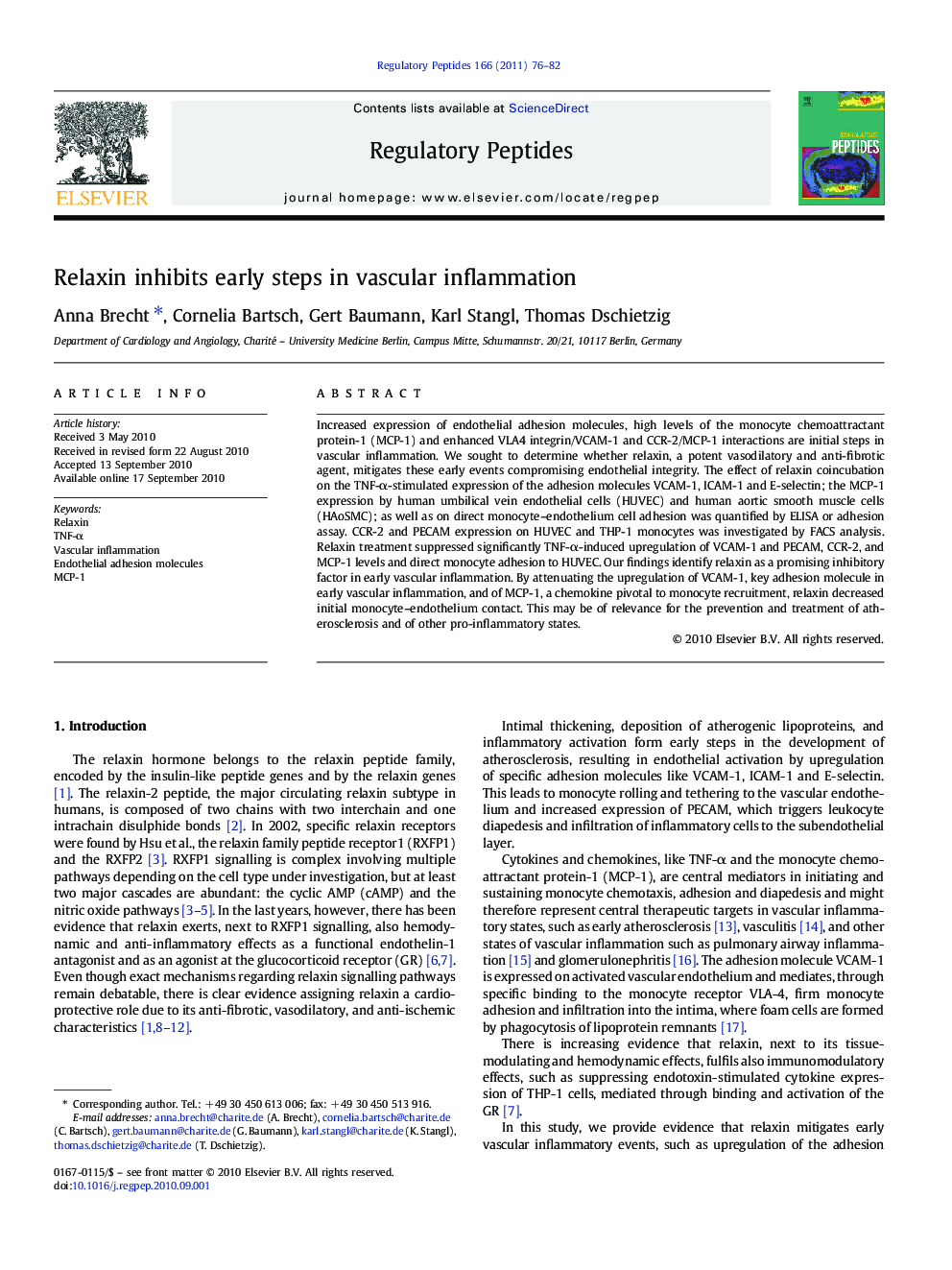| Article ID | Journal | Published Year | Pages | File Type |
|---|---|---|---|---|
| 2022617 | Regulatory Peptides | 2011 | 7 Pages |
Increased expression of endothelial adhesion molecules, high levels of the monocyte chemoattractant protein-1 (MCP-1) and enhanced VLA4 integrin/VCAM-1 and CCR-2/MCP-1 interactions are initial steps in vascular inflammation. We sought to determine whether relaxin, a potent vasodilatory and anti-fibrotic agent, mitigates these early events compromising endothelial integrity. The effect of relaxin coincubation on the TNF-α-stimulated expression of the adhesion molecules VCAM-1, ICAM-1 and E-selectin; the MCP-1 expression by human umbilical vein endothelial cells (HUVEC) and human aortic smooth muscle cells (HAoSMC); as well as on direct monocyte–endothelium cell adhesion was quantified by ELISA or adhesion assay. CCR-2 and PECAM expression on HUVEC and THP-1 monocytes was investigated by FACS analysis. Relaxin treatment suppressed significantly TNF-α-induced upregulation of VCAM-1 and PECAM, CCR-2, and MCP-1 levels and direct monocyte adhesion to HUVEC. Our findings identify relaxin as a promising inhibitory factor in early vascular inflammation. By attenuating the upregulation of VCAM-1, key adhesion molecule in early vascular inflammation, and of MCP-1, a chemokine pivotal to monocyte recruitment, relaxin decreased initial monocyte–endothelium contact. This may be of relevance for the prevention and treatment of atherosclerosis and of other pro-inflammatory states.
Research Highlights►Relaxin treatment blunted endothelial and vascular muscle VCAM-1 expression. ►Stimulated expression of MCP-1 was mitigated significantly by relaxin coincubation. ►Stimulated expression of CCR-2 was suppressed significantly by relaxin treatment. ►Stimulated PECAM expression on endothelial cells was blunted by relaxin treatment. ►Relaxin incubation decreased significantly the monocyte–endothelial adhesion.
